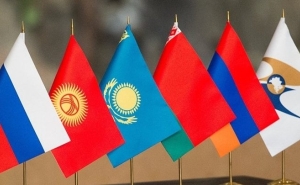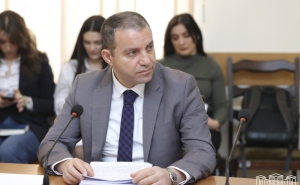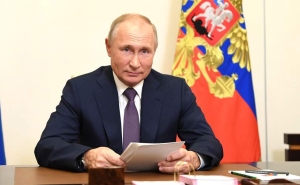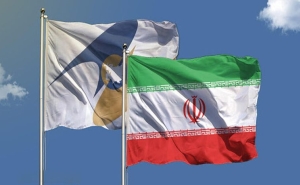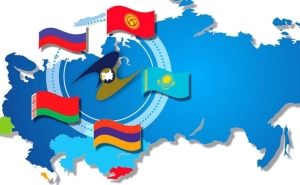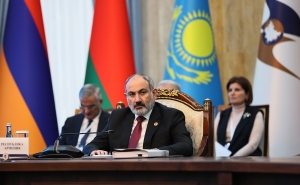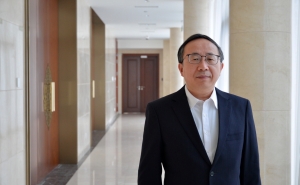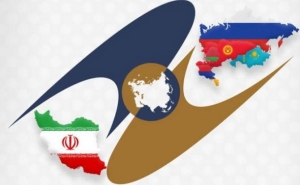The Eurasian Space Is Not Simply a Bridge Between Europe and China, but a Self-Sufficient and Distinctive Space
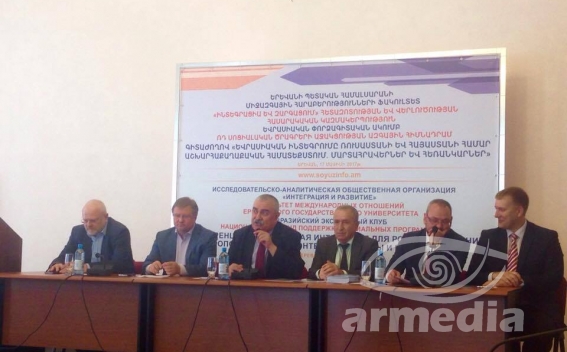
On May 18 a conference on "Eurasian integration for Russia and Armenia in the geopolitical context: challenges and prospects" was held in Yerevan State University. The results of the pilot project on the introduction of the subject of Eurasian studies into the curriculum of undergraduate and graduate students at the Faculty of International Relations of the Yerevan State University were summed up.
The organizers of the project are research-analytical NGO "Integration and Development", the Eurasian Expert Club, the Faculty of International Relations of the YSU and the National Fund for Support of Social Programs in Russia.
As one of the authors of the course, director of the Institute of the EAEU Vladimir Lepekhin noted, "Eurasian integration is not only a union in the economic sphere, but also in culture, politics, information, etc. We all tried to describe this in twelve lectures." The course of lectures was presented to the Ministry of Education and Science of Armenia, which in the future will decide to introduce the course as a mandatory or optional subject in universities. The course was developed by the Russian-Armenian team, with the support of the National Fund for Support of Social Programs of Russia. It was first introduced in Armenia, and if it succeeds, will be further offered to other countries of the EAEU member states, as well as those states that are interested in the processes of Eurasian integration.
The chairman of the NGO "Integration and Development" Aram Safaryan stressed that the collection of lectures compiled on the basis of this course was a great success and was distributed also outside of Armenia. "The collection was compiled on the principle of flexible modules to enable us to update and deepen the set of knowledge on the Eurasian integration included in the course," Safaryan said. He stressed the importance and effectiveness of the course also for young professionals and journalists who participated in the round tables held at the "Noravank" Foundation as part of the project. "The most important thing it that with this course we want to stress that the Eurasian integration is an economic process, the aim of which is to form a single economic area. But we also want to show that if there is no civilizational community of the post-Soviet countries, no integration process can succeed. Our goal is to explain to the students that the Eurasian space is not a simple bridge between Europe and China, but a self-sufficient and distinctive space that possesses such civilizational values that is worth fighting for," Safaryan said.
During the conference, reports were made by the Director of the Institute of the EAEU, the member of the Scientific Council on the Problems of Eurasian Integration of the Russian Academy of Sciences, the candidate of philosophical sciences Vladimir Lepekhin, independent economic and financial expert Ivan Anisimov and the head of the department of theory and history of political science of YSU, the doctor of political sciences, the member of the Eurasian expert club Ashot Yengoyan.
"Formation of multipolar world is taking place and the Eurasian space should become (and already becomes) one of the poles," Vladimir Lepekhin said in his report.
Ivan Anisimov highly appreciated the importance of the course on Eurasian integration. "This is the first scientific and comprehensive attempt to approach the processes of Eurasian integration," he said. In his report, he referred to the EAEU single currency and the cooperation of member countries.
"The single currency will appear when it is necessary," Anisimov said, adding that the introduction of a single currency would have a negative impact on the union, if this is done hastily and would not reflect the objective process of integration of economies.
Ashot Yengoyan, in turn, turned to the ideological, civilizational and value basis of the Eurasian space. "Whatever the economic preferences of the countries in the Eurasian Union, today it is necessary to find the ideological and political basis that justifies the attractiveness of the future union and directs practical policy. It is the weakness of such an ideological system that raises doubts among certain citizens about the viability of this integration union," Yengoyan said.
The speakers of the conference answered the questions of the students who were studying at the mentioned course.
Other materials on this subject
- EAEU to become one of key centers of Greater Eurasian Partnership, says Putin "Our integration may play the role of one of the key centers of the Greater Eurasian Partnership formation," the president added.
- Russia ratifies protocol on requirements for length of service of EEU bodies' employees for pensions The corresponding law was signed by Russian President Vladimir Putin. The document was published on the official Internet portal of legal information.
- We have reached significant achievements in the development process of the EAEU- Nikol Pashinyan A large single market has been created, the mutual trade figures have increased considerably.
- Russia ratifies agreement on simplification of payments for goods’ transit within EAEU territory The aforesaid agreement will be applied in the event that the goods are subject to the procedure of customs transit in one EEU member country, whereas customs and other payments in another.
- EAEU Countries Discuss Creating Eurasian Agency for Strategic Initiatives The issue has been discussed by the economy ministers of the Union’s member states and has been presented to the Eurasian Economic Commission in the platforms of the Eurasian Inter-governmental Council.
-
 17:08
17:08The regular session of the Anti-corruption Policy Council takes place in Jermuk
-
 15:05
15:05The Prime Minister sends congratulatory messages to the supreme leader of Iran and the President of Iran
-
 11:11
11:11Armenia sends earthquake aid to Turkey
-
 10:43
10:43Commemoration of the Pontiff St. Sahak Partev
-
 09:16
09:16Some roads are closed and difficult to pass in Armenia
-
 19:55
19:55Phone conversation of the Foreign Minister of Armenia with the U.S. Assistant Secretary of State for European and Eurasian Affairs
-
 18:30
18:30Prime Minister Pashinyan and President Khachaturyan meet
-
 18:20
18:20Ararat Mirzoyan with Co-Chairman of the OSCE Minsk Group of France Brice Roquefeuil
-
 17:01
17:01Humans could land on Mars within 10 years, Musk predicts
-
 16:45
16:45France, US urge 'immediate' end to Nagorno Karabakh blockade
-
 16:01
16:01Blockaded Nagorno Karabakh launches fundraiser to support quake-hit Syria
-
 15:59
15:59Earthquake death toll in Turkey rises to 18,342
-
 15:43
15:43Ararat Mirzoyan Held a Telephone Conversation with Sergey Lavrov
-
 15:06
15:06French president rules out fighter jet supplies to Ukraine in near future
-
 14:47
14:475 Day Weather Forecast in Armenia
-
 14:44
14:44President Vahagn Khachaturyan wrote a note in the book of condolences opened in the Embassy of Syria in Armenia
-
 14:20
14:20Azerbaijan’s provocations impede establishment of peace and stability – Armenian FM tells Russian Co-Chair of OSCE MG
-
 12:57
12:57France representation to OSCE: Paris calls on Azerbaijan to restore freedom of movement through Lachin corridor
-
 11:40
11:40Command of Kosovo forces highly appreciated preparation of Armenian peacekeepers
-
 10:16
10:16The United States withdrew from sanctions against Syria for six months the provision of assistance after the earthquake
day
week
month
Humidity: %
Wind: km/h


